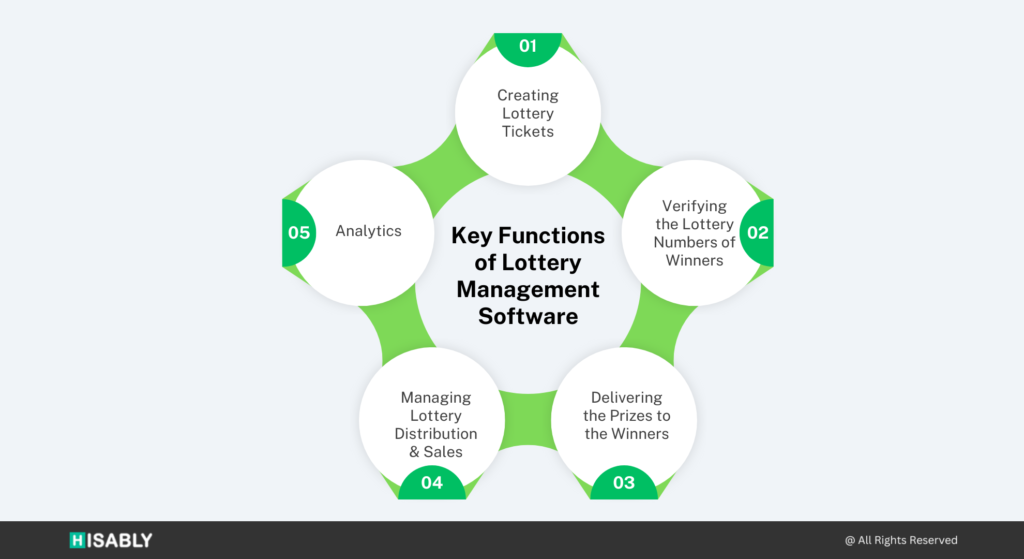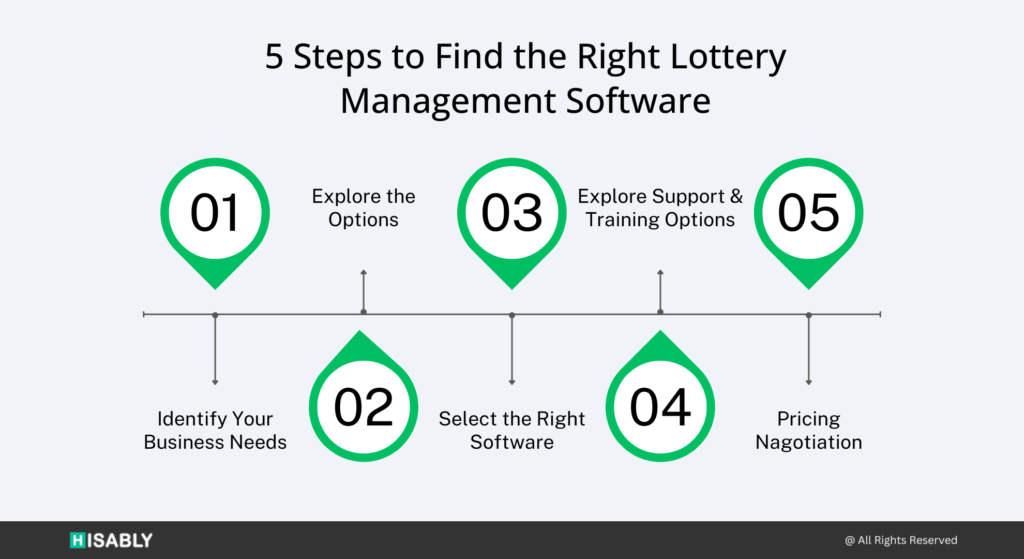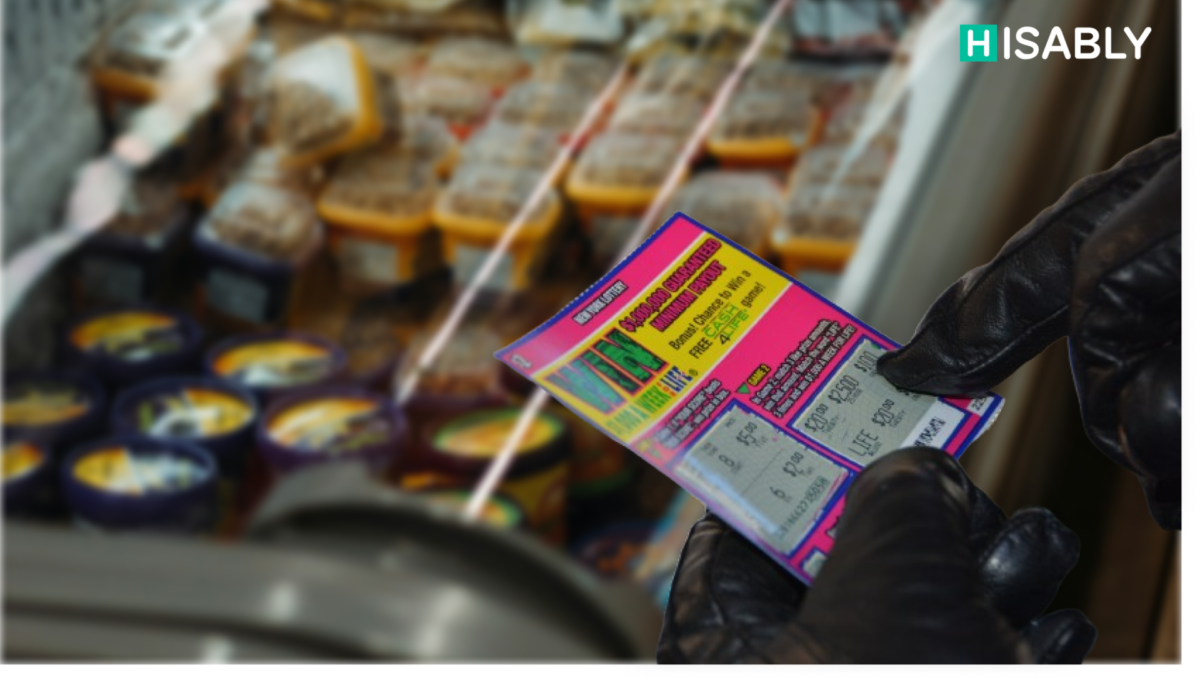The lottery business is one of the highest-risk ventures. Every ticket counts, and retailers often make costly mistakes when managing the tickets manually.
As industries globally adopt technology to enhance precision, the lottery sector is no exception.
Hisably drives digital transformation to lottery businesses by offering cutting-edge lottery management software. It streamlines varied lottery operations, including ticket tracking, financial reporting, and more. Introducing automation, the platform makes operations not just smoother but nearly error-free.
In this post, we will explore 3 major areas, which include
- Top pitfalls of managing lottery data manually,
- Advanced features of Hisably that empower lottery management
- A comprehensive comparison of manual and automated lottery management
Ready for the ride? Let’s get started!
Top 5 Pitfalls of Manual Lottery Management
Prone to Errors
There are possibilities that manual data entry and calculations can lead to significant errors, such as misrecorded numbers or overlooked transactions, which can impact financial outcomes and customer trust.
These errors can compromise the integrity of the lottery operations, leading to potential legal issues and loss of customer confidence.
Time-Consuming
Manual ticket and sales tracking is labor-intensive and requires extensive manpower and hours. It drives inefficiency by reducing the overall productivity of the operation and increasing operational costs significantly.
By digitizing and automating these processes, you can allocate your team to customer service or strategic tasks.
Difficulty in Scaling
As the business grows, manual processes become increasingly cumbersome and inefficient. This has a negative impact on operational scalability.
Lack of scalability can prevent lottery operators from expanding their market reach or increasing their game.
Inadequate Real-Time Data
Operators often struggle with the lack of real-time insights, as manual processes delay the availability of critical data, hindering timely decision-making and responsiveness to market changes.
Delays in data-driven insights can result in missed opportunities and an inability to react swiftly to competitive pressures or customer demands.
Limited Audit Trails
Manual systems do not provide clear, easy-to-follow audit trails, complicating compliance with regulations and making it difficult to track the source of discrepancies.
Lack of transparency can also make financial audits more time-consuming and increase the risk of non-compliance penalties.
Hisably: A Modern Lottery Management Software
Hisably aims to revolutionize lottery management by integrating sophisticated technology to address challenges faced by lottery operators.
It enhances accuracy, efficiency, and scalability in lottery operations, making these systems more reliable and easier to manage.
By reducing dependency on manual processes, Hisably strives to transform the lottery industry, ensuring streamlined and future-proof operations.
7 Advanced Lottery Management Features of Hisably
Automated Ticket Tracking
Hisably, a leading lottery management software comes with automated ticket tracking features. It ensures that every ticket sale and transaction is automatically recorded with precision, eliminating human error that can lead to financial discrepancies.
The instant availability of this data also allows for quick review and resolution of any issues, enhancing operational reliability and customer trust.
Real-Time Analytics
With access to live data, Hisably allows the operators to
- Monitor sales performance,
- Track customer behavior, and
- Analyze financial statistics in real-time
Using Hisably, lottery managers will leverage
- Making informed decisions swiftly
- Adapting promotions and operations to align with current market trends and customer preferences
- Maximizing revenue opportunities
Scalable Operations
Hisably is cloud-based lottery management software. It is built to adapt seamlessly to the needs of lottery operations of any scale, from small local retailers to large national operators.
With this scalability, you can be sure that as the business grows, the system can handle increasing transaction volumes without a proportional increase in errors or management overhead, facilitating efficient expansion.
Enhanced Audit Trails
The system’s comprehensive logging and documentation features create detailed audit trails for every transaction, making it easier to adhere to regulatory standards and simplify audits.
This clarity and organization in record-keeping aid in compliance and enhance operations’ transparency. It is crucial for building credibility and securing operator licenses.
Inventory Management
By automatically tracking ticket inventories in real-time, Hisably helps operators avoid the common pitfalls of overstocking or running out of popular tickets.
Maintaining optimal inventory levels ensures that sales are maximized without the risk of unsold inventory, leading to better resource management and cost savings.
Financial Integration
Hisably allows the integration of tools for financial reporting and accounting directly into the platform to streamline the financial management of lottery operations.
This integration simplifies transaction management and aids in the preparation of accurate financial audits, reducing the time and effort required for financial administration.
Security and Compliance
Built with the latest security protocols, Hisably protects sensitive data against unauthorized access and breaches. Robust data protection measures streamline compliance with industry regulations, ensuring that both operator and customer information is secure.
The security infrastructure protects the business and builds trust among customers, who are assured that their data is handled safely.
Comparative Analysis: Manual Lottery Management vs. Hisably Lottery Management
When it comes to managing a lottery business, the difference between manual processes and modern, automated solutions like Hisably can be night and day. Here’s a detailed look at how Hisably stands out:
Error Rate
Manual lottery systems are fraught with the potential for human error—from misentered tickets to miscalculated earnings.
Hisably’s automated processes eliminate such errors, ensuring accuracy and reliability in every transaction.
Operational Speed
Manual processes are inherently slow due to paperwork and physical limitations.
Using Hisably, you can transform this landscape with digital solutions that accelerate every aspect of lottery management, from sales tracking to financial reporting, enabling operations to run more swiftly and smoothly.
Scalability
Scaling up operations in a manual system can be a logistical nightmare, often leading to increased errors and overhead.
Leveraging Hisably’s cloud-based infrastructure, you can have effortless scalability, handling increased transaction volumes seamlessly without compromising on performance.
Data Insight
In a manual setup, accessing and analyzing data can be complex and time-consuming, often leading to outdated insights.
Hisably provides real-time analytics and insights, allowing operators to make informed decisions quickly based on the latest data.
Compliance Ease
Compliance with regulatory standards is crucial but challenging with manual systems due to inadequate audit trails.
With the help of Hisably, you can simplify compliance through automated and comprehensive documentation, ensuring all transactions are transparent and traceable.
Inventory Accuracy
Manual inventory management is prone to errors such as lottery tickets overstocking or stockouts.
Hisably helps you improve inventory accuracy by
- Automating inventory control
- Maintaining optimal levels
- Ensuring that bestsellers are never out of stock
Financial Integration
Manual financial management can be disorganized and error-prone.
Allowing to integration of financial operations into a single platform, Hisably streamlines processes like accounting and audits, enhancing financial oversight and accuracy.
Security Standards
Manual systems often lack consistent security protocols, exposing operations to risks of data breaches.
Hisably employs advanced security measures, safeguarding sensitive data and providing peace of mind for both operators and customers.
Conclusion
As we wrap up our dive into how Hisably transforms lottery management, it’s evident that this solution dramatically streamlines operations, reduces errors, and supports growth.
Hisably provides a robust, secure framework that brings lottery systems into the modern age with automation and real-time analytics. Whether you’re scaling up or aiming to enhance accuracy and efficiency, Hisably is equipped to meet your needs.
Interested in seeing these benefits in action?
Get in touch with us today and discover how Hisably can revolutionize your lottery operations.












